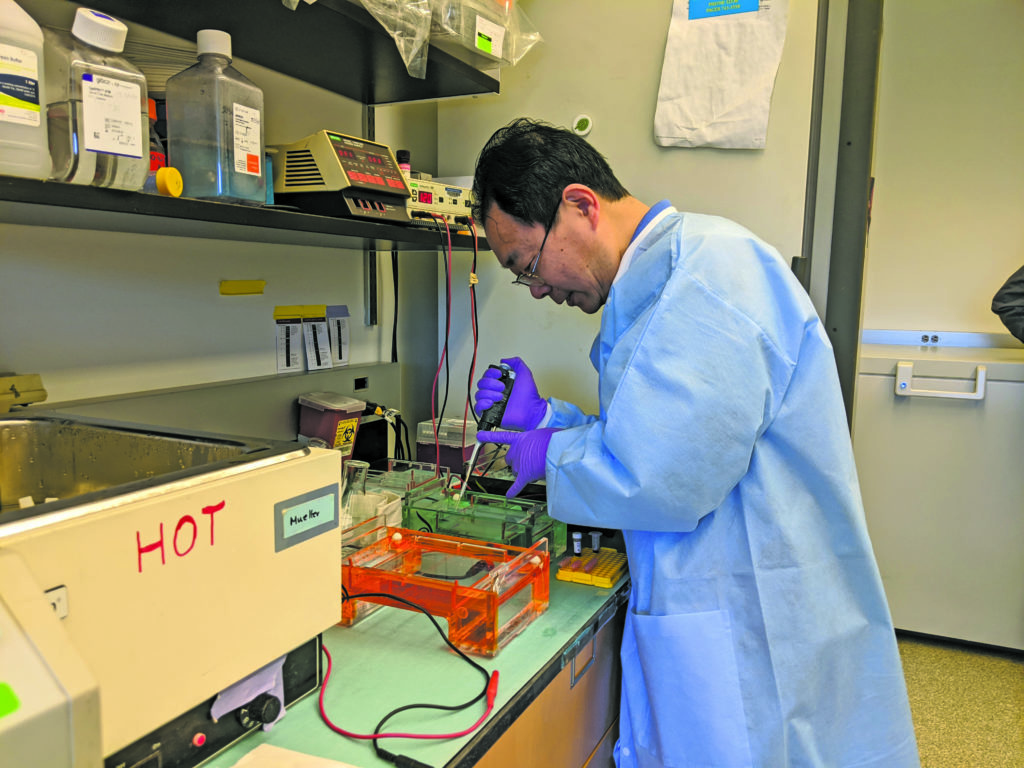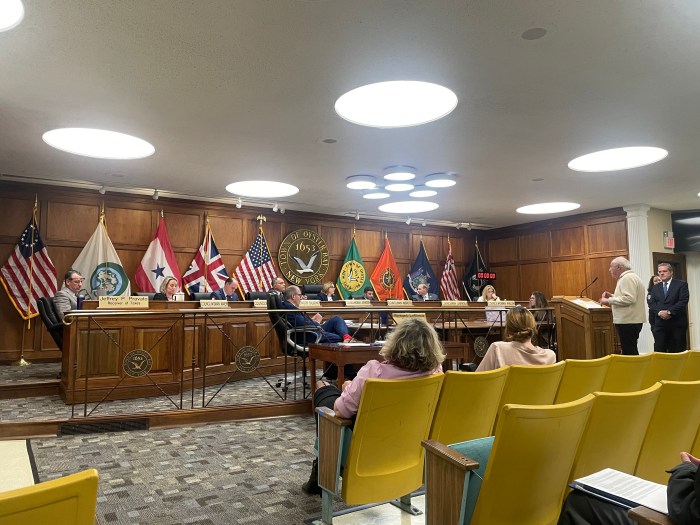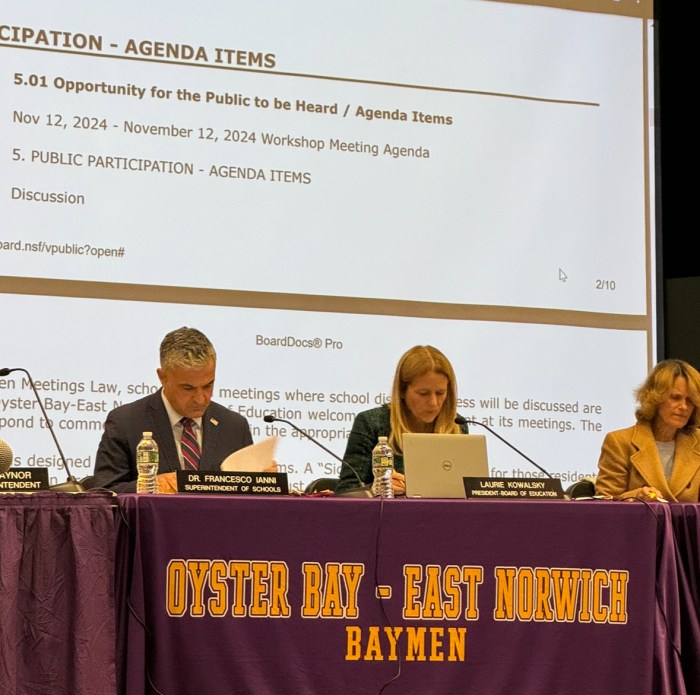
Many people are concerned about the coronavirus outbreak, professionals in the medical industry are scrambling to find ways to stop the spread of the infectious disease. A local lab is eagerly trying to invent a vaccine for the virus within the next few months.
Codagenix, located in the Broad Hollow Bioscience Research Park at Farmingdale State College, is a starup that launched out of the lab of Stony Brook University’s distinguished professor Dr. Eckard Wimmer. The core of the company comes from Wimmer’s technology that helped him become the first to synthesize a virus from scratch.
“It is a proprietary algorithm that suggests substitutions for viral genomes [a virus’ DNA] that makes the human cell really dislike that viral genome,” Anna Kushnir, vice president for partnerships and business development at Codagenix, said. “The genius in the approach is knowing that you don’t need to start with a virus sample, you can just go to geoanalysis. That’s what we’ve been building.”
The company first explored the idea of creating a coronavirus vaccine starting around late December and early January. As case numbers were building, virologists at the lab were getting concerned with how contagious the disease was becoming.
“We decided we needed to start making a vaccine,” Kushnir said. “Really, at our very core, we can call ourselves a public health company. We are here to make a difference in the lives of people who contract viral diseases. And because we can make vaccines so much faster than most other companies, we almost feel an obligation to try.”
Codagenix was able to access the genetic code of coronavirus thanks to Chinese health officials, who shared it with the world shortly after the disease began spreading. Over the span of 22 days, the company was able to synthesize the virus and fully assemble vaccine genomes. They made multiple vaccines against coronavirus for testing on animals, which the company says follows safety and ethical guidelines under the Food and Drug Administration (FDA).
If the company finds a vaccine that they want to move forward with, they’ll need to follow FDA guidelines for approval and it will be reviewed as an IND (Investigational New Drug) application. Once they are approved, they can begin a clinical study that could lead to the vaccine being distributed for emergency purposes, if the FDA gives approval for such authorization. The goal for Codagenix is for them to safely test it on humans come late April or May.
Kushnir said that the rapid spread of the coronavirus is because of where it likely originated.
“This [strain of the] coronavirus didn’t come from humans,” Kushnir said. “It likely made the jump from animals to humans, most likely bats. We get all kinds of nasty diseases from bats. Because it made that species jump, the human population doesn’t have any preexisting immunities to the virus. Compare that to the flu, which every human on earth has had some kind of flu infection at one point in their lives that can provide some kind of protection that can make another influenza infection less severe. That doesn’t exist for the coronavirus.”
Another factor is that the coronavirus is very infectious, even more than influenza, which is causing it to spread rapidly. Since humans who contract it haven’t had it before, our immune system does not have the antibodies to fight back.
Dozens of individuals in the state of New York have contracted the disease, with four case confirmed in Nassau County at the time of publication. The Center of Disease Control and Prevention (CDC) has released a list of ways to prevent individuals from getting the virus, including avoiding close contact with people who are sick, avoiding touching your face, staying home while sick and frequently washing your hands with soap and water for at least 20 seconds. Visit www.cdc.gov/coronavirus/2019-ncov/about/prevention-treatment.html to see the full list of prevention techniques.
Codagenix and its programs are supported by Adjuvant Capital, Euclidean Capital, TopSpin Partners and government agencies. such as the United States Department of Agriculture (USDA), the National Institute of Health and the Department of Defense. Visit www.codagenix.com to learn more about Codagenix and the history of their lab.
To learn more about how Nassau County officials are attempting to stop the spread of coronavirus, see page 18A.





























